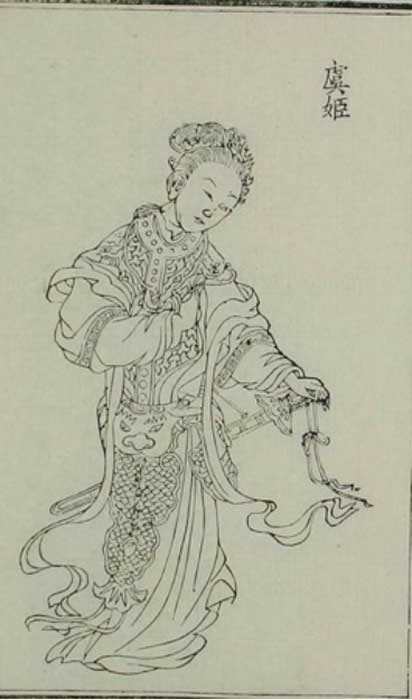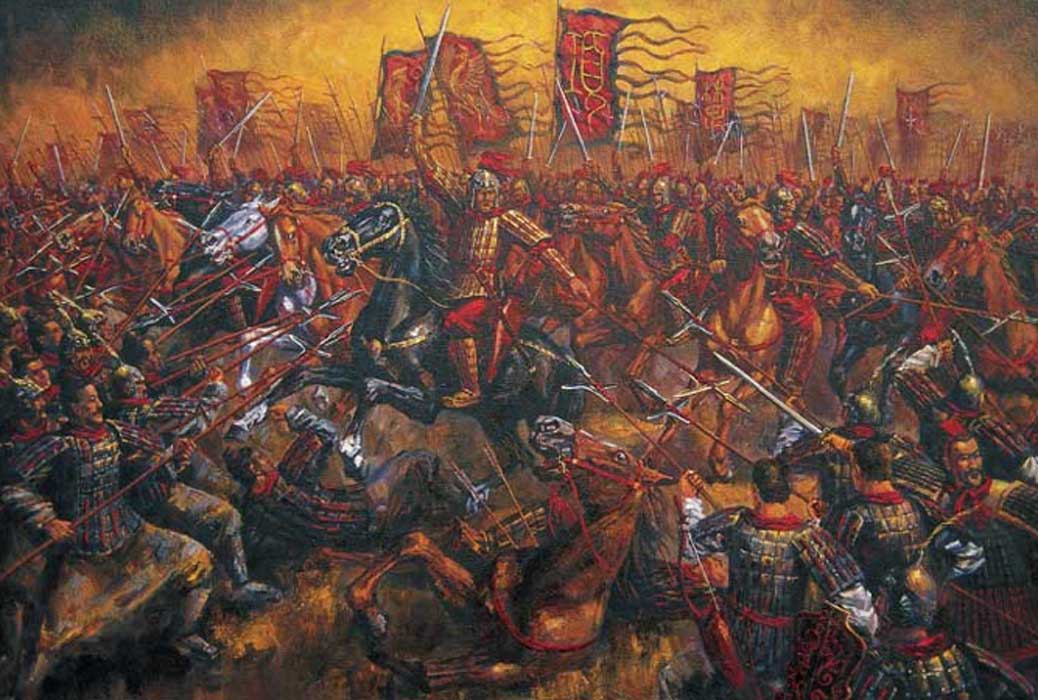The Impressive Battle of Gaixia: Chinese Reunification Emerges from Chaos
The Battle of Gaixia was an important battle that occurred in 202 BC. It was the last battle in the Chu-Han Contention, which lasted between 206 BC and 202 BC. This was the period between the end of the Qin Dynasty and the beginning of the Han and was marked by a fragmented China. Two powerful states emerged from the chaos – Chu and Han and it was only in 202 BC, following the Battle of Gaixia, that a victor emerged to re-unify China.
The dynasty that Qin Shi Huang founded collapsed following his death in 210 BC. His son, Qin Er Shi, was an incapable ruler and reigned for only three years. During his short reign, rebellions against Qin rule broke out in various parts of China. In addition to the Qin, these rebels fought against themselves as well for supremacy.
- Mythical Ancient Emperors Who Fought Over the Birth of China - Who Started It?
- Underwater Treasure Found in Southwestern China Makes Reality out of 300-Year-Old Mythical Battle
- The Ballad of Hua Mulan: The Legendary Warrior Woman Who Brought Hope to China

Ceramic figurines of Western Han infantrymen. (Weapons and Warfare)
Xiang Yu and Liu Bang Rise Up
Eventually, two rebel leaders rose to the top. One was Xiang Yu, who led the state of Chu, whilst the other was Liu Bang, who ruled the state of Han. Whilst Xiang Yu was of noble birth, Liu Bang was a commoner. Xiang Yu took the title of ‘King of Western Chu’, and conferred the title of ‘King of Han’ on Liu Bang, thus raising him to nobility as well.

Xiang Yu (Public Domain) and Liu Bang (Public Domain)
The alliance between the two men, however, did not last for long. When Xiang Yu began redistributing the lands and re-organizing various states, some of the lands belonging to Liu Bang were given away. Although Liu Bang protested against this decision, he was ignored. Enraged, Liu Bang assembled his forces, and attacked Xiang Yu, thus initiating the Chu-Han Contention.
A Treaty Broken
In 203 BC, the Treaty of Hong Gate (known also as the Treaty of Hong Canal) was negotiated, which ended hostilities between Xiang Yu and Liu Bang. The latter, however, desired to re-unify China under his rule. As a consequence, the treaty was broken and Liu Bang resumed his attack on Xiang Yu. The conflict reached a turning point in 202 BC with the Battle of Gaixia.
Prior to this battle, Xiang Yu had managed to push Liu Bang back to his base in Han. A counter-attack by Liu Bang’s generals on Xiang Yu’s state forced him to abandon his attack and to return to defend his homeland. During the march back to the state of Chu, Xiang Yu’s army was constantly harassed by the troops led by Han Xin, one of Liu Bang’s generals. The ultimate goal of this engagement was to trap the army in the canyon at Gaixia. As this was a large army, the narrow pass would be an ideal place to annihilate it.

Scene of the Battle of Gaixia. (Weapons and Warfare)
During one of these skirmishes, Xiang Yu’s concubine, Yuji, was captured, and used as a bait to lure Xiang Yu into the trap. The king was aware that he would be walking into a trap. Nevertheless, he was determined to save the woman he loved. He decided to split his forces, sending most of his forces to relief his capital, and led 100,000 soldiers to Gaixia.
- Not a Shot in the Dark: How Crossbows Changed War in Ancient China
- An honored Zhou Dynasty warrior, buried with a chariot and horses, has been unearthed in China
- The Ming Dynasty Concubines: A Life of Abuse, Torture and Murder for Thousands of Women

Consort Yu, concubine of Xiang Yu. (Public Domain)
The Song of Gaixia
As one may expect, Xiang Yu’s army was ambushed from all sides as it entered the canyon. Nevertheless, the remaining men fought until nightfall and eventually were able to rescue Yuji. Throughout the night, the Han soldiers were ordered to sing native songs of the Chu. This was meant to remind the remaining Chu soldiers of the homes they have left behind, so as to demoralize them. The ruse worked, and many began to desert. Even Xiang Yu believed that his capital had fallen and all was lost. The lament ‘The Song of Gaixia’ is said to have been composed by Xiang Yu as he sat drinking with Yuji.
Suicide and a New Emperor
Yuji committed suicide after performing a sword dance for Xiang Yu, as she believed that it was the king’s love for her that caused his downfall. Having buried Yuji, Xiang Yu, with less than 800 men under his command, began to fight his way out of the canyon the following morning, in an attempt to return to his capital.

Yuji committed suicide after performing a sword dance for Xiang Yu. (El Gran Capitán/CC BY NC ND 2.5)
The Han forces followed them, and eventually caught up with them. A fierce battle between the two forces followed at the Wu River. Most of Xiang Yu’s men were killed, and the king, realizing that he would soon be captured, decided to take his own life, rather than become a prisoner of Liu Bang.
Thus, the state of Chu came to an end, and the Han Dynasty was founded by Liu Bang, who would later be known as Emperor Gaozu of Han.

18th century representation of Liu Bang as Emperor Gaozu of Han. (Public Domain)
Top image: ‘Battle of Gaixia.’ Source: history.bjinnovate.com
By Wu Mingren
References
Cultural China, 2014. Battle of Gaixia. [Online]
Available at: http://arts.cultural-china.com/en/96A168A648.html
Rickard, J., 2012. Battle of Gaixia, January 202 BC. [Online]
Available at: http://www.historyofwar.org/articles/battles_gaixia.html
Tucker, S., 2011. Battles that Changed History: An Encyclopedia of World Conflict. Santa Barbara, Calif.: ABC-CLIO.
Weapons and Warfare, 2015. Battle of Gaixia. [Online]
Available at: https://weaponsandwarfare.com/2015/12/03/battle-of-gaixia/

















